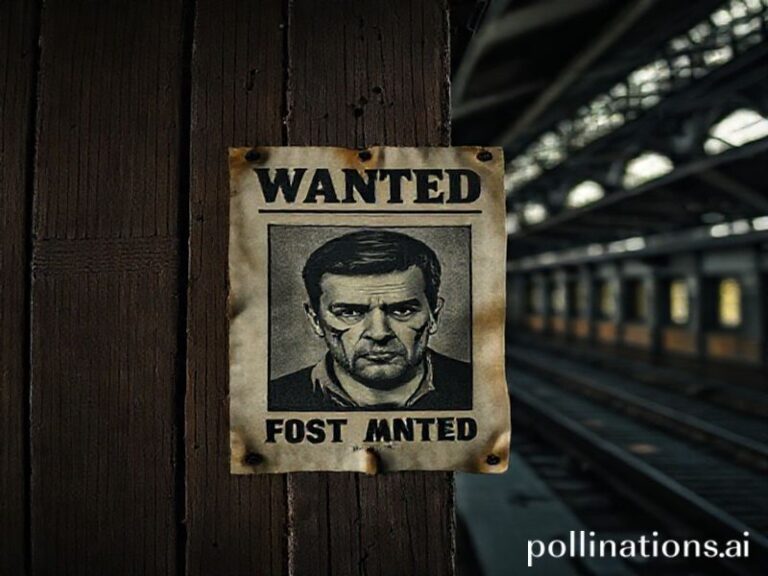Cameron Skattebo: The Last Honest Export in a World Selling Mirages
Cameron Skattebo and the Curious Economics of American Muscle in a Fractured World
By L. M. Valdez, Senior Correspondent, Dave’s Locker
SÃO PAULO—While COP negotiators in Dubai were still arguing over commas in the final climate text, 5’9″, 215-pound Cameron Skattebo was 7,400 miles away, lowering his shoulder into a UCLA linebacker as if the planet’s future depended on three extra yards. To the untrained eye it was just another college-football Saturday; to the rest of us—those condemned to watch geopolitics in real time—it looked like the last functioning supply chain of pure, uncut American optimism.
Skattebo, Arizona State’s human cannonball, doesn’t merely run the ball. He rehearses a dying art: the uncompensated collision. In an era when European central bankers print money to avoid recessions and Chinese real-estate developers build ghost cities for no one, this kid sells each hit at full sticker price. No derivatives, no bailouts, no carbon offsets—just amortized cartilage. It’s quaint, really. Almost nostalgic.
The international significance? Start with the export balance. The NFL, a $18-billion-a-year entertainment empire, still relies on unpaid U.S. college athletes to incubate its product before shipping it to Munich, Mexico City, and soon, presumably, a domed stadium on the moon. Skattebo is therefore a rare American commodity that matures domestically, suffers depreciation voluntarily, and then—if he survives the amateur meat-grinder—gets packaged for global consumption like a Boeing fuselage with better thighs.
Over here in Brazil, we know what raw commodity extraction looks like; we’ve turned the Amazon into a drive-through. Watching Skattebo drag three defenders into the end zone is oddly familiar: a resource-rich region (the Pac-12) being strip-mined for value by distant conglomerates (Disney, Fox, DraftKings). The difference is the rainforest never signs a letter of intent.
Yet the world watches, rapt, because the transaction is so brutally honest. In a marketplace addicted to opacity—crypto exchanges vaporizing overnight, sovereign wealth funds buying English soccer teams to launder reputations—Skattebo’s ledger is transparent. You see the yards gained, the helmet stickers accumulated, the ligaments endangered. It’s the last price tag anyone believes.
Europeans, who treat American football the way Americans treat cricket—polite bemusement followed by existential dread—have begun importing the spectacle anyway. Amazon Prime now beams college games into Stockholm living rooms where teenagers who can’t find Nebraska on a map cheer for “that angry tractor in maroon.” Cultural imperialism has never been subtler: first McDonald’s, now a Sun Devil fullback pancaking a safety on fourth-and-one. Somewhere in Brussels, a bureaucrat updating the Digital Services Act pauses to Google “what is a blitz.”
Meanwhile, the Global South recognizes the transaction’s colonial aftertaste. African and Caribbean athletes have long traveled north to power American sports programs, but the pipeline is widening. Scouts now comb Polynesian high schools like nineteenth-century whalers scanning the horizon for oil. Skattebo himself is a small-town Arizonan, yet he represents the template: take one sturdy regional product, brand it with a Power-5 logo, and syndicate worldwide. If it sounds like the banana trade, that’s because it basically is—except bananas don’t tear ACLs.
Of course, the athlete himself remains largely unaware of the macroeconomics. Asked after last week’s win about his “global brand,” Skattebo shrugged and said he just likes “moving the chains,” a phrase that could double as the International Monetary Fund’s mission statement. There’s something almost touching about that sincerity—like watching a coal miner compliment the canary’s singing voice.
The dark punch line is that we, the international audience, need this weekly bloodletting more than the players do. While supply chains seize, glaciers calve, and democracies flirt with autocracy, a 20-year-old running back offers a 12-second master class in unambiguous effort. He gains six yards, the clock stops, and for one brief commercial break the planet agrees on a scoreboard. Then the broadcast cuts to a Ford ad filmed in New Zealand, and we remember nothing is local anymore—not even a kid from Rio Rico slamming into the future at 4.4 seconds per forty yards.
Conclusion: Cameron Skattebo is not saving the world; he’s collateral damage in its slow-motion bankruptcy auction. But every time he refuses to go down quietly, he reminds us—between pharmaceutical commercials and cryptocurrency scams—that some debts still get settled in real time, with compound interest measured in bruises. And for a species addicted to deferred pain, that’s the closest thing we have to honest accounting.







